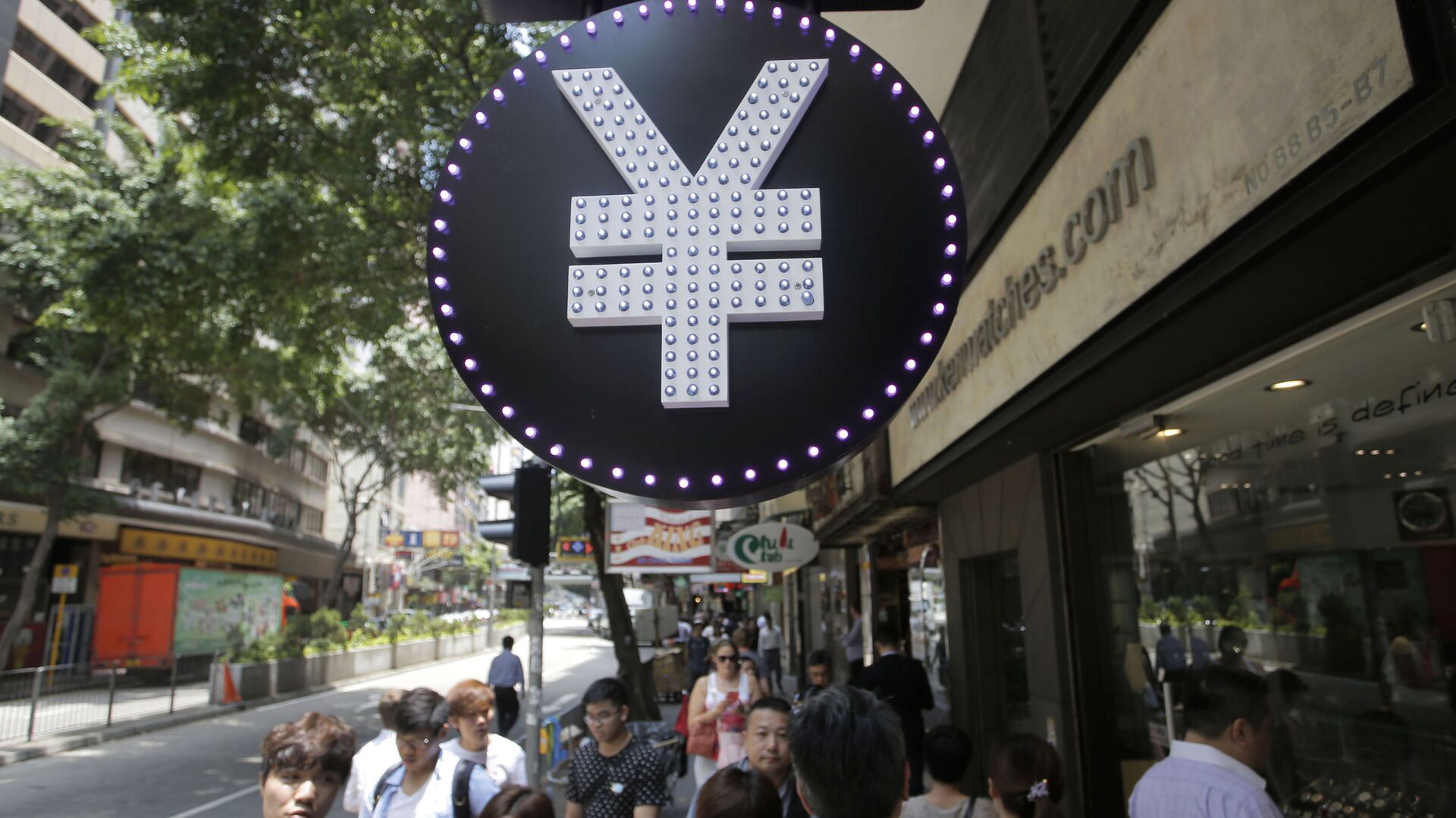Exports of EU goods to China increased by 2.2% and imports went up 5.6%. At the same time, the EU's trade with the US dropped dramatically, with imports sliding 13.2% and exports falling 8.2%.
As a result, the overall value of EU-China goods trade in 2020 amounted to €586 billion ($706 billion), which is €31 billion ($37 billion) more than between the European bloc and its longstanding partner, the US. In addition to this, CNN Business has drawn attention to the fact that the Chinese economy expanded 2.3% last year, overcoming the negative consequences of the pandemic, while the US' output shrank 3.5%.
China's Key to Success is Quick Recovery From Pandemic
"Last year, the US economy was devastated by the COVID-19 pandemic as the virus hit the United States harder than it did in China", says Thomas Weir Pauken II, a Beijing-based US commentator specialising in Asia-Pacific Affairs and author of "US vs. China: From Trade War to Reciprocal Deal". "Consequently, Americans were reluctant to spend money unless it was for daily necessities, as well as to prepare for staying at home for a prolonged duration; and to adapt to changing conditions''.
In contrast, the Chinese economy had rebounded by the second half of the year and growth surged more than expected in the fourth quarter of 2020, the author highlights, adding that "many Chinese not only kept their jobs but they had reaped in higher incomes for their households and as such they were more willing to buy luxury goods along with other European imports".
"Hence, this explains how the Chinese market surpassed the US to emerge as the EU’s largest trading partner last year and I forecast China to stay on top, since the US economy could hit a severe downturn in the near future", Pauken suggests.
Despite US stock markets and property prices having recently seen an impressive rally, "that’s not sustainable since it’s creating the conditions for a bubble and all market bubbles do burst eventually", warns Pauken. Earlier this week, DataTrek Research, an investment analysis firm, suggested that US stocks could see correction soon as interest rates begin to rise.
Pauken believes that one "should also expect a dramatic drop in US-China trade if the US economic downturn strikes with a vengeance".
"American consumers will be spending less and that will directly impact Chinese exports to the US", he says.
CAI May Help China Stay on Top
Meanwhile, the EU appears to be poised to enjoy even stronger trade growth with China given that Brussels and Beijing have moved forward on the Comprehensive Agreement on Investment (CAI), according to the Asia-Pacific affairs commentator.
On 30 December 2020, the EU and China reached an "agreement in principle" on the CAI following a call between Chinese President Xi Jinping and European Commission President Ursula von der Leyen, European Council President Charles Michel, German Chancellor Angela Merkel on behalf of the presidency of the EU Council, and French President Emmanuel Macron.
In accordance with the new deal, which had been negotiated for seven years, China committed to provide to a greater level of market access for EU investors and ensure fair treatment for EU companies "so they can compete on a better level playing field in China, including in terms of disciplines for state owned enterprises, transparency of subsidies and rules against the forced transfer of technologies", according to the European Commission's press release. The deal has yet to be approved by the European Parliament.
The European officials' determination to conclude the CAI deal has certain grounds. Currently, business relations between the People's Republic and the bloc are governed by 25 different bilateral investment treaties (BITs). According to Bruegel, a Brussels-based economic think tank, these BITs "suffer from three main drawbacks":
· First, "they only address investment protection and not liberalisation or market access";
· Second, "none of the BITs cover sustainability issues, rules on state-owned enterprises (SOEs) or transparency rules on subsidies";
· Third, "the coverage of the BITs is quite variable, as are their exceptions". Thus, for instance, the French BIT covers culture issues while the Finnish BIT targets discriminatory local content measures for investment.
“Biden officials are particularly annoyed by the trade deal that the EU has struck with China, strengthening commercial ties between the two powers and offering little in the way of sanction for China’s human rights abuses.” https://t.co/Rcv0DpyqBJ
— John Tasioulas (@JTasioulas) February 14, 2021
The CAI appears to hit a raw nerve of US China hawks: according to American Enterprise Institute (AEI) fellows, the EU's trade deal demonstrates that the bloc is guided by a "narrow, material self-interest under the US security umbrella". The AEI argues that Brussels should have at least waited for Joe Biden's inauguration, denouncing China as the US' "most important adversary". "China is trying to rush a deal through before EU-US relations stabilise", wrote Dalibor Rohac, an AEI resident scholar.
"You will see a paradigm shift with the EU moving away from the US markets and to boost more investments and cross-border trade with China", forecasts Thomas Pauken. "EU companies will generate higher revenues from Chinese consumers, while American consumers will be less relevant for EU manufacturers and exporters".
Meanwhile, Daniel S. Hamilton of the Woodrow Wilson Centre in Washington, DC, argued that if one combines trade in goods and trade in services, the US would still outperform the People's Republic with an estimated €950 billion ($1.12 trillion) in total trade for 2020.
However, Pauken believes that if the EU Commission and legislature formally approves the CAI, China could beat the US in terms of total trade by 2023 or 2024, citing a potential demise of the American economy under President Joe Biden.





